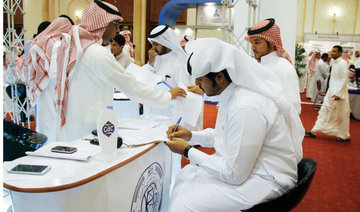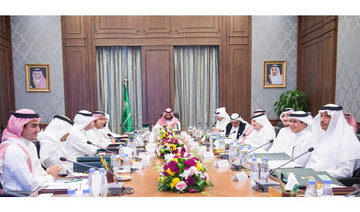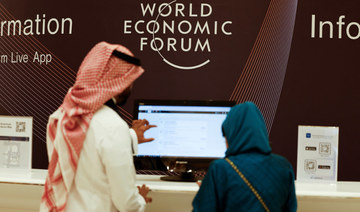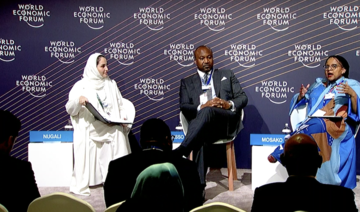JEDDAH: International Islamic Trade Finance Corporation (ITFC) is scheduled to sign deals on Thursday exceeding $1 billion to support strategic commodities for a number of its member countries, CEO of ITFC Hani Salem Sonbol told Arab News.
The deals target the socioeconomic and trade development of these countries.
“The ITFC work is very diverse,” Sonbol told Arab News in an exclusive interview on the sidelines of the 42nd Islamic Development Bank (IDB) annual meeting that concludes Thursday. “We cover all aspects. Because we came to believe that financing alone will not help member countries.”
The Jeddah-based ITFC, which is an autonomous entity within the IDB, has 57 member countries from Suriname in South America to Indonesia in Southeast Asia.
The total IDB group trade financing since inception is $60 billion, out of which the ITFC contributed $36 billion to the member countries.
The main sectors that the ITFC supports are the energy and the agricultural sector. Each country is supported according to its need.
“We customize solutions,” Sonbol said, adding “We don’t have one size fits all.”
The business model adopted by the ITFC is to respond to the changing needs of member countries and the new challenges facing them. The model entails blending trade finance and trade development aspects.
“We don’t have shelf products, except for direct financing, ‘Murabaha’ financing, which is a cost-plus-profit arrangement in Islamic finance,” he said, adding that each country needs a program designed to fit its specific needs.
Two-thirds of the supported member countries are in Africa. Earlier this week, the ITFC signed a three-year $450 million framework agreement with the government of Burkina Faso, which Sonbol described as “one of the major clients.”
The agreement aims to enhance the country’s ability to export agricultural commodities such as cotton and also import its needs from the basic strategic commodities like crude oil and refined petroleum products as well as agricultural input.
The largest portion of the ITFC’s portfolio is to enhance the energy sector in the member countries; at almost 60 percent. This includes green energy, Sonbol said.
“What is new now is the ITFC is aware of the changes that new types of energy actually exist and that’s why we also try to innovate our products and programs to support renewable energy, green finance, and all these environment-friendly products,” he said.
There are new items on the ITFC agenda today. Digitization is one of them. Renewable energy, climate change, which is directly linked to trade finance, is another. Food security and an important sector that the ITFC is supporting, which is the agricultural sector, are also on the agenda.
Other programs are related to capacity building, promotional trade, and business-to-business (B2B) contracts. “Recently we had a very important B2B between African cotton producers and Bangladeshi cotton importers. We try to facilitate trade through our programs, build capacities in member countries,” Sonbol said.
As there is a regional move toward diversifying the economy to adjust to the recent oil crises, there is a move to invest in the SMEs industry.
The ITFC is designing new programs for SMEs to help meet challenges in areas like access to finance and capacity building.
“They need knowledge and advice so we support with advisory services,” Sonbol said, adding that the ITFC is currently working with the Saudi Ministry of Commerce to develop the SME sector in the Kingdom.
Boosting SMEs is among the goals in the Saudi Vision 2030 and they are described as being “among the most important agents of economic growth; they create jobs, support innovation and boost exports,” the Saudi Vision states.
Sonbol said that this program could be replicated in other countries in the future.
“We have been supporting SMEs in the private sector in general and we have achieved almost $10 billion of financing to this important sector.”
He added that the sector plays a major role in the diversification of the economy, similarly in Morocco, Tunisia or Pakistan.
ITFC to sign $1bn agreements to boost trade development in member states
ITFC to sign $1bn agreements to boost trade development in member states
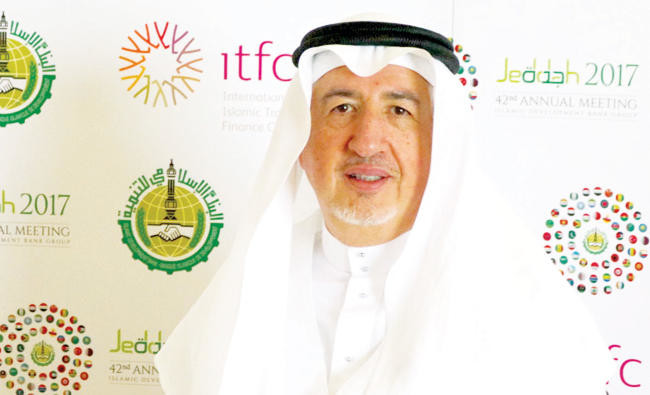
Algeria asked by Europe to boost gas supply
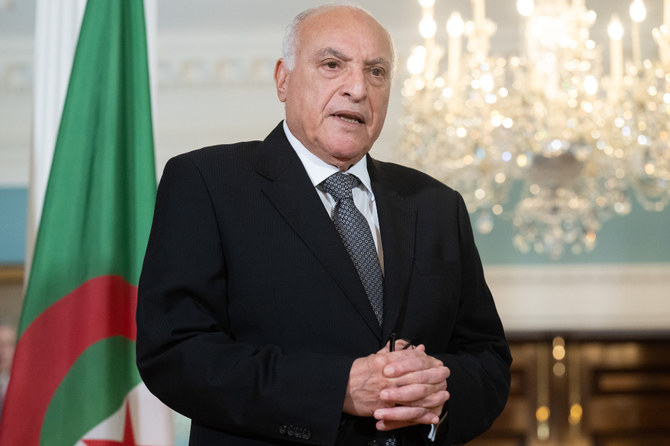
- Regional, global conflict affecting energy industry, says Algeria FM
- Key constraints are Israel war on Palestine, Ukraine-Russia battle
RIYADH: Algeria has been asked by its partners in Europe to increase gas supply because regional and global conflicts have affected the industry, the country’s foreign minister said on Sunday.
Speaking at a special World Economic Forum meeting in Riyadh, Ahmed Attaf said his country has established a “very complex network of cooperation” with its partners in the region.
“We are a Mediterranean country. We are a gas-producing country. We are asked by our partners in Europe more and more to deliver additional quantities of gas,” he said.
Speaking about how the global environment has changed over the past two-and-a-half years, Attaf said that conflict has affected the energy market, which requires more effective intervention from the UN and its Security Council.
“We have, of course, the conflict in Ukraine that is impacting our region. We have the Palestinian-Israeli conflict that is also impacting our region, and we have the Sahel region. And we are also feeling the impact of the deteriorating situation in this region on the Euro-Mediterranean area,” he added.
He said the “sophisticated” energy cooperation did not come at “the cost of our commitments to alleviating the effects on our environment.”
Saudi Arabia committed to preserving environment, water resources, minister tells WEF
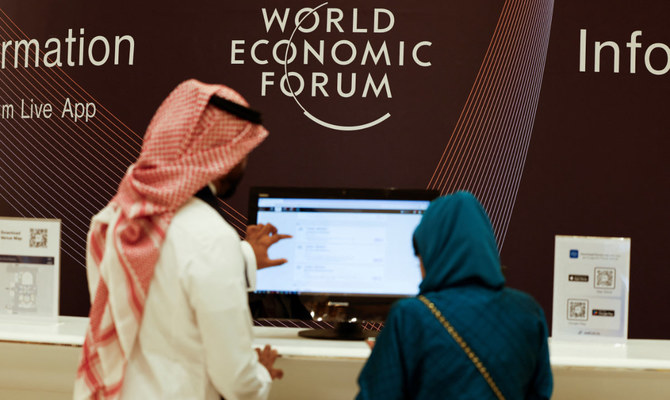
- Nation providing incentives for private sector to become more engaged, Abdulrahman Al-Fadley says
DUBAI: Saudi Arabia has detailed plans for the protection of its lands and environmental resources, the Minister of Environment, Water and Agriculture said on Sunday.
Speaking at the World Economic Forum in Riyadh, Abdulrahman Al-Fadley said: “We have devised our plans based on the preservation of our environment and the management of our water resources. The Kingdom is also providing incentives for the private sector to become more engaged and more responsible toward the environment.”
With 40 percent of lands around the world degraded and further degrading at an alarming rate, critical action is needed as the UN Convention to Combat Desertification COP16 is set to take place in Riyadh in December.
Al-Fadley said Saudi Arabia had preserved millions of hectares of land and set up programs for cloud seeding and increasing the number of dams in the country.
“This will not only be beneficial to the Kingdom but for the whole region,” he said. “With us hosting COP16 we are hoping to give the meeting the importance it commands. We don’t want matters to go back to the status quo after COP16 ends.”
Tariq Al-Olaimy, a member of the Global Shapers Community Foundation Board at the WEF, commended King Salman for his land restoration efforts.
“When you put nature first, you are equally putting people first,” he said. “Nature is our greatest collaborator … There is no successful growth story without successful land restoration and this starts inwardly, through our religion, community, values and moral clarity.”
Ibrahim Thiaw, secretary of the UNCCD, warned of global repercussions if the world did not pay heed to environmental safekeeping.
“Entire ecosystems are being destroyed through actions and inactions,” he said. “There has been a 29 percent increase in droughts in the past few years and that is affecting 1.8 billion people around the world. For poor nations that is disastrous and carries a large death toll of animals, people and agriculture. We have to be more proactive and not just emergency-ready. We must attempt to avoid emergencies.”
Thiaw said the Panama Canal’s functionality had been reduced by 12 percent, which was causing a problem for supplies.
“Demand is increasing while resources are shrinking,” he said. “As humanity we have been looking at resources as if they are unlimited. We have not been managing them. Companies need to reset their relationship with nature and we need to focus on land restoration to keep going.”
Naoki Ishii, director of the Center for Global Commons, had similar concerns.
“We are on a collision course,” he said. “The only solution is to modify our economic system. COP16 must be transformative for all of us. We need the political momentum to implement positive changes.
“If we are able to push those efforts, economically and ideally speaking, that will be a game changer.”
Saudi Arabia, UAE have world’s most ambitious decarbonization programs: WEF panel
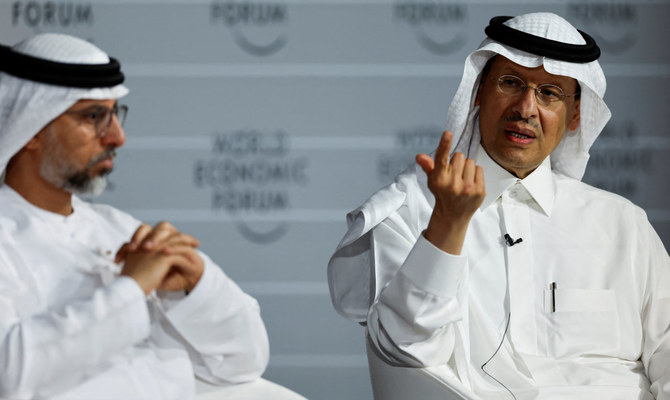
- “Solving sustainability problems requires technology and China has contributed greatly by increasing technical progress and making the cheapest energy available to the world”
DUBAI: A panel of ministers and experts gathered at the World Economic Forum in Riyadh on Sunday to discuss the road map for tripling renewables by 2030.
The UAE’s Minister of Energy and Infrastructure Suhail Mohamed Al-Mazrouei said his country’s goal would not only be reached but possibly exceeded by 2030.
“The UAE has been offering solar power to aid the world in reaching the goal of tripling renewables,” he said. “We have very few years until 2030, we need to work alongside and encourage countries to make the achievement by then.”
Li Zhenguo, president of Longi Green Energy Technology, said the Chinese government had been at the forefront of efforts to develop renewables.
“In 2023, China installed 216 solar power plants, which is more than 50 percent of the global capability,” he said.
“Solving sustainability problems requires technology and China has contributed greatly by increasing technical progress and making the cheapest energy available to the world.”
Marco Arcelli, CEO of Saudi-based ACWA Power, said he was surprised by the momentum in the region.
“Saudi and UAE have the most ambitious decarbs programs in the world. There is a speed and dimension you don’t see much elsewhere,” he said.
“There is leadership with a vision, there is cheap energy available and I believe you will start seeing greenshoring in the Kingdom by 2030. Lots of upcoming projects in the country, be it NEOM or others, will be solar driven and using renewable energy.”
Kuwait’s Minister of Electricity, Water and Renewable Energy Salem Alhajraf said there was a need to increase global production capacity.
“Innovative financing is key,” he said. “We need to move from small giga-sized projects to deploying renewables. Cities or towns with small populations can possibly have all their needs met by solar power.”
Stephanie Jamison, global Resources Industry Practices chair at Accenture, said her company had been developing guidelines for community engagement and nature transition.
“By conducting surveys and interviewing various CEOs, it has become clear that companies understand the impact they are making on nature. And so, partnerships between companies and proactive partnerships between companies and the community is one way to tackle challenges.”
Saudi energy minister, EU official discuss cooperation on clean energy
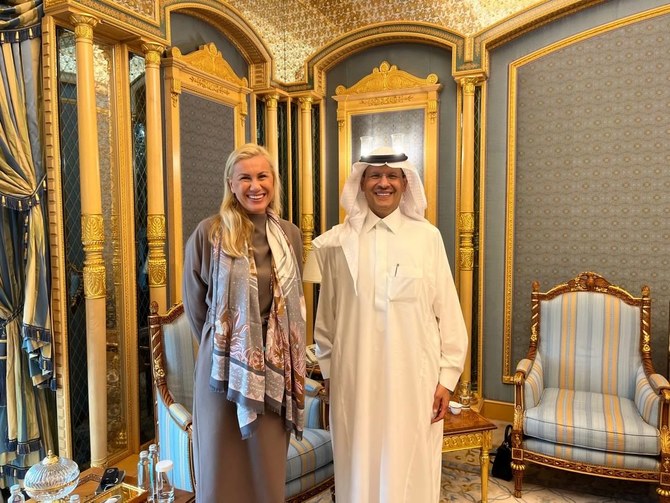
RIYADH: Saudi Energy Minister Prince Abdulaziz bin Salman on Sunday held talks with EU Energy Commissioner Kadri Simson to discuss prospects for cooperation in the field of clean energy.
The top officials met on the sidelines of the World Economic Forum in the Saudi capital, the Saudi Press Agency reported. They discussed ways to strengthen bilateral ties, boost cooperation for the promotion of green energy and advance the goals of the Paris Agreement and ensure the implementation of the outcomes of the COP28 held in Dubai last year.
The Paris Agreement is an international treaty on climate change that was adopted back in 2015. It was negotiated by 196 parties at COP21 in France and covers climate change mitigation, adaptation, and finance.
They reaffirmed the common goals of Saudi Arabia and the EU and the determination of both parties to accelerate private investment in the renewable energy sector, cooperate on electricity interconnection and the integration of renewables into the electricity grid.
The officials stressed the need to strength the electricity supply infrastructure through demand side management smart grid. They also discussed carbon capture, utilization and storage technology and opportunities for industrial partnerships in those sectors.
They also shared their view on building on the UNFCCC, the Paris Agreement and COP28 outcomes. The officials also discussed a Saudi-EU memorandum of understanding to boost cooperation in the energy sector.
According to SPA report, they were of the view that such an MoU should provide a solid and mutually beneficial basis for orienting and anchoring investment decisions in the energy and clean tech sectors, involve and mobilize stakeholders from the public, private and financial sectors, and lay the foundation for a more sustainable and secure energy future.
The European Commission and Saudi Arabia aim to conclude the MoU in the next few months.
Saudi Arabia to host 28th World Investment Conference in Riyadh
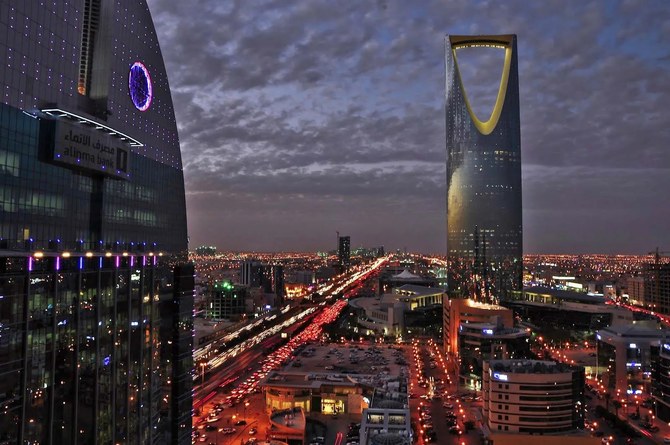
RIYADH: Saudi Arabia is on track to host the 28th World Association of Investment Promotion Agencies’ World Investment Conference from Nov. 25 to 27 in Riyadh.
The forum themed “Future-ready IPAs: Navigating digital disruption and sustainable growth,” will bring together leaders from investment promotion agencies, corporates, multilateral institutions, and other stakeholders to discuss global financial trends and opportunities, according to a statement.
The Kingdom’s selection as a host underscores its position as an international funding hub, according to Saudi Investment Minister Khalid Al-Falih.
“We are honored to be welcoming the global investment community to Saudi Arabia. Our strategic location at the crossroads of three continents, coupled with our world-class investment ecosystem and long-term political and economic stability, has seen the Kingdom develop into a global investment hub,” Al-Falih said.
“The World Investment Conference will serve as a platform to showcase our nation’s potential and forge partnerships that will shape the global investment landscape for years to come,” the minister added.
On WAIPA’s behalf, Executive Director and CEO Ismail Ersahin said: “WAIPA is honored that the 28th WAIPA World Investment Conference will be held in Riyadh, a city with a rich history and culture.”
Ersahin added: “With each edition, the WIC reaffirms its status as a guiding force for sustainable and inclusive development.”
He went on to stress how the conference is poised to be an impactful gathering aimed at the future readiness of IPAs.
Since 1995, the annual gathering has provided a forum for stakeholders to exchange insights and best practices and forge partnerships that drive economic development globally.



